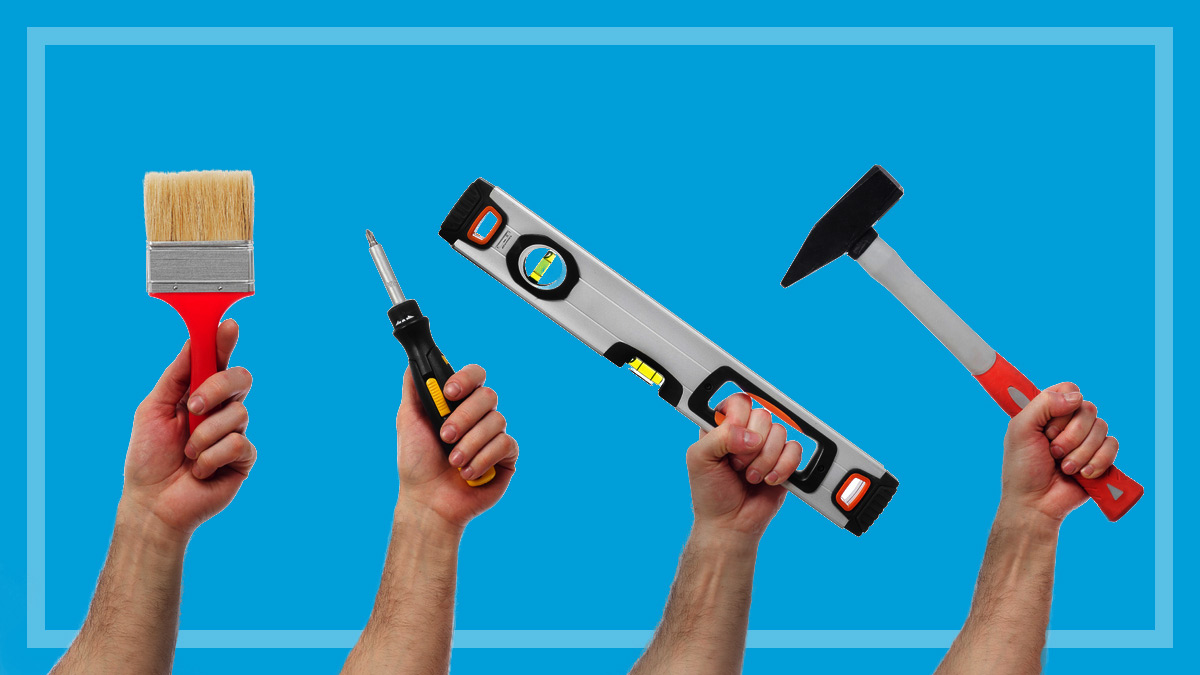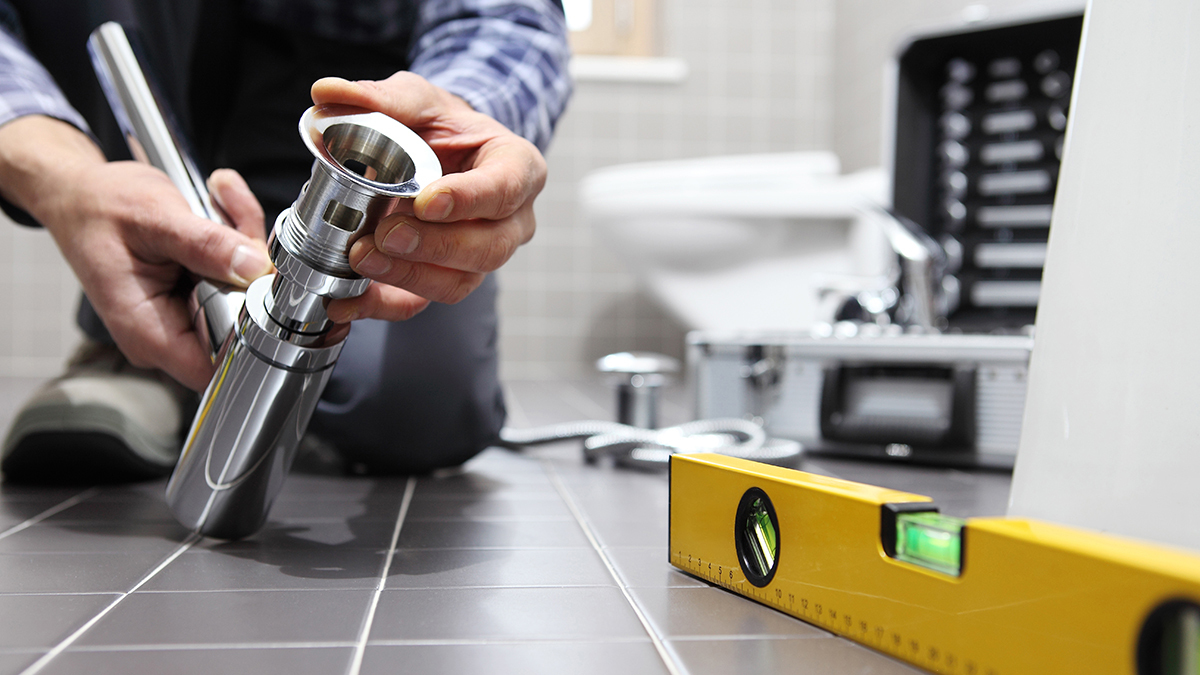Get our independent lab tests, expert reviews and honest advice.
How to resolve conflicts with tradies

Whether you’re embarking on a new home build, an extension or alteration, you’ll inevitably be dealing with various tradespeople to get the job done.
On this page:
- Common tradie-client conflicts
- How to avoid tradie-client conflicts
- Checking your tradies' licences
- Ensuring your tradie has public liability insurance
- Why communication is king
- Keeping detailed records
- Resolving conflict in four simple steps
- What should I do if talks fail?
And while some of those relationships will be great, others may result in conflict if issues and concerns are not effectively handled by both tradie and home owner.
Your relationship with your trade professional will play an essential role in the success of your renovation. We’ve put together some advice on how to avoid conflict before it escalates – and how to deal with it effectively when it’s unavoidable.
Whether you’re embarking on a new home build, an extension or alteration, you’ll inevitably be dealing with various tradespeople to get the job done.
And while some of those relationships will be great, others may result in conflict if issues and concerns are not effectively handled by both tradie and home owner.
Your relationship with your trade professional will play an essential role in the success of your renovation. We’ve put together some advice on how to avoid conflict before it escalates – and how to deal with it effectively when it’s unavoidable.

Common tradie-client conflicts
When it comes to renovation, conflict occurs when the actions of one person or group hinders, or are perceived to hinder, the actions or achievement of another.
A June 2019 CHOICE Consumer Pulse survey of 1176 households found that among those who’ve undertaken renovations (35%), the results have been largely positive, with 78% of respondents happy with the end result of their renovation.
However, almost a third (32%) of respondents thought tradespeople made the project more difficult than they thought it would be.
There are many reasons why the relationship between a tradesperson and client can break down, but some common issues include:
- misunderstandings relating to messages, roles, responsibilities and tasks
- personality clashes between clients and tradespeople
- differences in goals and expectations
- disagreements around cost and payment
- disputes over contracts
- defective or incomplete work
- differences over methods employed
- poor communication and cooperation
- delays that put financial strain on client or tradie
- design flaws that require time and money to correct
- competing schedules, pressing deadlines and project management concerns.

How to avoid tradie-client conflicts
Many issues are avoided by having a contract and ensuring your tradesperson is licensed and insured before starting the job.
Have a contract
“A written contract is vital if you are going to build a house, or intend repairing, renovating or extending your home, regardless of how much you are spending,” says Gina Ralston, Chief Dispute Resolution Officer at Domestic Building Dispute Resolution Victoria (DBDRV).
“It is a crucial document in settling any dispute with your building contractor and I recommend consumers have a written contract for all building works, regardless of size and price.”
I recommend consumers have a written contract for all building works, regardless of size and price
Gina Ralston, Domestic Building Dispute Resolution Victoria
These agreements outline the services that a tradesperson will or will not do, the terms and conditions upon which they provide their services and the agreed cost to be invoiced to the client.
Home owners should thoroughly read and understand the agreement prior to signing it and seek further legal advice if necessary.
Checking your tradies’ licences
In most states, you need to use a licensed tradesperson or building practitioner for any residential building work worth over a set amount (which varies from state to state), as well as any electrical wiring, plumbing, air conditioning, refrigeration, drainage or gasfitting work.
NSW Fair Trading’s research into licensing reveals that some consumers are at risk because they don’t actively check that a tradesperson is licensed. 80% of homeowners think licensing is important, but only 10% go to the Fair Trading website to check.
Australia’s strict safety standards and licensing requirements for licensed occupations helps ensure tradies are qualified and legitimate.
Check with your state, territory or local government authority that your chosen tradespeople have a current licence.
ACT: Access Canberra
NSW: NSW Fair Trading
NT: Northern Territory Consumer Affairs
SA: SA.GOV.AU
TAS: Consumer, Building and Occupational Services
QLD: Queensland Building and Construction Commission
VIC: Domestic Building Dispute Resolution Victoria
Search for licensed tradies
ACT: Access Canberra
NSW: Service NSW
NT: Licensing NT
SA: Consumer and Business Services
TAS: Consumer, Building and Occupational Services
QLD: Queensland Building and Construction Commission
VIC: Victorian Building Authority
WA: Commerce WA Gov
Ensuring your tradie has public liability insurance
It’s essential that your tradesperson has the appropriate insurance to work on your project, for both their safety and security and yours. If a tradesperson has no insurance or it has lapsed and something goes wrong, both parties will be impacted.
Any tradesperson you contract should have public liability insurance, which will cover mistakes or accidents that may occur onsite and pay out for damage, replacement or repair. Without it, the client may be left to foot the bill or pay legal fees to recover the money.
In fact, if you’ve knowingly contracted a tradesperson that doesn’t have this vital insurance, you – the person who hired the tradie – could be held liable, as you own the property.
But it’s not just the tradies’ insurance you should be considering when embarking on a renovation. A licensed builder should have construction insurance, but this will generally only cover the part of the structure they’re working on.
Why communication is king
Managing conflict is the responsibility of both client and tradesperson and its success stems from honest and regular communication between the two parties.
“It is important to keep in regular contact with your builder to check progress and discuss any queries you might have,” Ralston says.
“By communicating directly with your builder, you will avoid any unnecessary confusion and be confident that both you and your builder are clear on the work that is being done, and what it will cost.”
Breakdowns in communication can happen between homeowners and tradespeople for many reasons. As soon as you’re aware there is an issue, speak with your contractor. Talking things over could resolve the problem quickly. Be upfront but calm and polite – it could be a simple misunderstanding, which can be resolved by talking it though.

Keeping detailed records
Ensure you keep accurate and true records of the entire project – receipts, phone messages, photographs, invoices, quotes, contracts and invoices can all come in handy when clarification is required.
“You should keep copies of all relevant documents, for example, contracts, invoices and written communications,” Ralston says.
“You should also consider keeping a record of all conversations you have had with the other party and taking photographs of work that is the subject of dispute.”
Resolving conflict in four simple steps
1. Stay calm and react thoughtfully
Reacting in anger never works to resolve anything at all. Your best bet is to remain calm, tell the contractor that you’ll come back to them later and remove yourself from a confrontational situation to consider how to move forward most effectively.
2. Communicate your concerns with the tradesperson
Arrange a mutually agreeable time and place for you and your contractor to sit down and talk about the issue calmly, rationally and with the sole intention of resolving the issues at hand. This may involve some negotiation and compromise from both parties to avoid any further escalation.
3. Write a letter reiterating your discussion
Once you have both voiced your concerns around the issues, write a letter outlining what you have both agreed to do and by when, date it and sign it. Then provide your tradesperson with a copy and keep one for your records (you should use registered post if you are sending this by mail). This ensures your meeting is summarised on paper and will be a valuable resource should further action be necessary.
4. Check your agreement for a dispute clause
Some contracts contain a clause that deals specifically with dispute resolution, so it’s wise to check this before you take any further action. This clause will outline a prescribed dispute resolution process, which you are compelled to follow if you’ve signed the contract, before initiating any other action.

What should I do if talks fail?
If, despite your best efforts, you’ve been unable to resolve conflict between you and your contractor, you will need to seek alternative options. It’s reassuring to know there are state and territory government and industry bodies in Australia that can provide advice and sometimes mediation between both parties to find a resolution.
Contact your consumer protection agency: Your local state or territory consumer protection agency can provide you with information about your rights and options, and may be able to help negotiate a resolution.
Tribunal or court: If the consumer protection agency can’t help or you’re still not satisfied with the outcome, you can take your complaint to the tribunal or court, such as NCAT in NSW, VCAT in Victoria or the WA Building Commissioner.
If you’re nervous about making a complaint or haven’t done it before, here are some useful resources:
Sydney builder Kaz* was contracted to renovate a decrepit dwelling on a remote bush block. It was difficult to provide an estimate of the cost.
“Because there would be so many unforseens on this project, I advised the client at the time that this would be a cost-plus arrangement, which he agreed to.”
Kaz gave the client a budget estimate of $120,000, which he and his team exhausted before the project was completed.
“As the project evolved, the client’s interpretation of what he wanted changed – he added and altered things along the way, causing the price to go up another $30,000 or so,” he says.
The client was absent during the week and Kaz was travelling to the site on weekends to meet and discuss the project.
“Our means of communication was over the phone when necessary and a weekly meeting … to discuss the project and work through any details that arose during that week, and for the client to make some executive decision for the week ahead,” says Kaz.
The conflict occurred when the client perceived Kaz had gone over budget.
“As we got closer to the end of the project, I submitted an invoice … and he was taken aback by what he described as a blow out,” he says.
The client refused to pay.
“The delay resulted in financial stress to my business and also meant that me and my team couldn’t work on the premises until the issue was resolved, which delayed the project further,” he says.
“The client had wrongly interpreted my initial budget estimate, even though I was very clear from the outset that there would be many unforeseen issues.”
Sadly, there’s a lack of trust there which is unfair and far too commonly applied to us tradies.
Kaz requested a sit-down meeting to discuss the issue and, hopefully, find a quick resolution.
“He did pay in the end. We broke down the invoice to the itemised dollar to reassure him that the money had gone into his property, and not my Swiss bank account,” Kaz says.
“I’m not sure why he thought I was ripping him off, but on a long build like that, when every week it feels for a client like they’re handing over $20,000 here, $20,000 there, they get sick giving their money to you.
“Generally speaking, most clients will see a rip-off before they see the work that they’ve commissioned … Sadly, there’s a lack of trust there, which is unfair and far too commonly applied to us tradies.”
Kaz says he can understand why tempers may flare in these situations. “Look, I get it … I’m taking someone’s personal savings, entering their personal space, ripping it all apart and charging them for the inconvenience,” he says.
“Several months later, we ran into each other on the street and he went out of his way to thank me for all our hard work and said they were very happy with what they got,” he says.
Would Kaz have done things differently in hindsight? “I probably would’ve investigated the financial background of the client,” he says.
“When clients sign these big $100,000–250,000 contracts with builders, we have no access to the client’s financial position so we don’t really know whether they can actually afford to pay.”
Kaz says clients need to be flexible when it comes to the variables involved in building. “Things don’t always go according to plan – weather delays, material delays, change of scope of work,” he explains.
“It’s up to the builder to give an estimated price but also a worst-case scenario price, and to work within that range to achieve a cost effective solution.”
*Not his real nameEmbarking on a home renovation, Victoria contracted a tiler to complete her family’s bathrooms.
“The tiler came recommended but instead of completing the job himself, he sent an employee to complete the work,” Victoria says.
The result was that both of Victoria’s bathrooms had some fairly major issues.
“Tiles that weren’t squared properly with the wall, shower-wall tiles that had square holes cut for round mixers, tiles that were laid so poorly our children cut their feet on the edges of the shower floor tiles … just really poor workmanship,” she says.
This resulted in delays and significant financial strain for the family.
“These were expensive tiles that had to be reordered (plus shipping costs) [and] sourced from the same batch so colours would match. Time, money – it affected everything,” she says.
Victoria says one of the most difficult things was having a conversation with the tradie.
“Holding them to account for what I believed was poor workmanship was so hard, especially since the person was quite intimidating,” she says. “I found communicating with them difficult.”
Victoria and the tradesperson had to reach an agreement about what would be redone so they could move forward. “The tilers accepted there were flaws in the work so that made it easier to resolve,” she says.
Holding them to account for what I believed was poor workmanship was so hard, especially since the person was quite intimidating
Ultimately, Victoria knew that there were resources available to her but she chose to try and resolve the dispute personally before taking it further.
“Had they not admitted to and corrected some of the issues, I would’ve had to make a decision about whether to go down that track.”
Would she have done things differently, if she had her time over? “As owner builders with small kids, it was hard to coordinate all of the trades to be available when we needed them,” she says.
“We had a couple of tradies that we hadn’t worked with before and whilst most worked out fine, there were some that I wouldn’t use again. Next time I will get as many testimonials as possible.”
Victoria’s advice to other owner-builders is to work hard to avoid issues arising. “Plan your renovation well, work from a checklist with what needs to happen and when.” she says.
“Be as final as you can about your choices before you start as changes add delays so if you are unsure of something, research it. Also, don’t just assume the tradesperson will know what you want or mean and, lastly, don’t be afraid to speak up and say you’re not happy with the way things are progressing.






